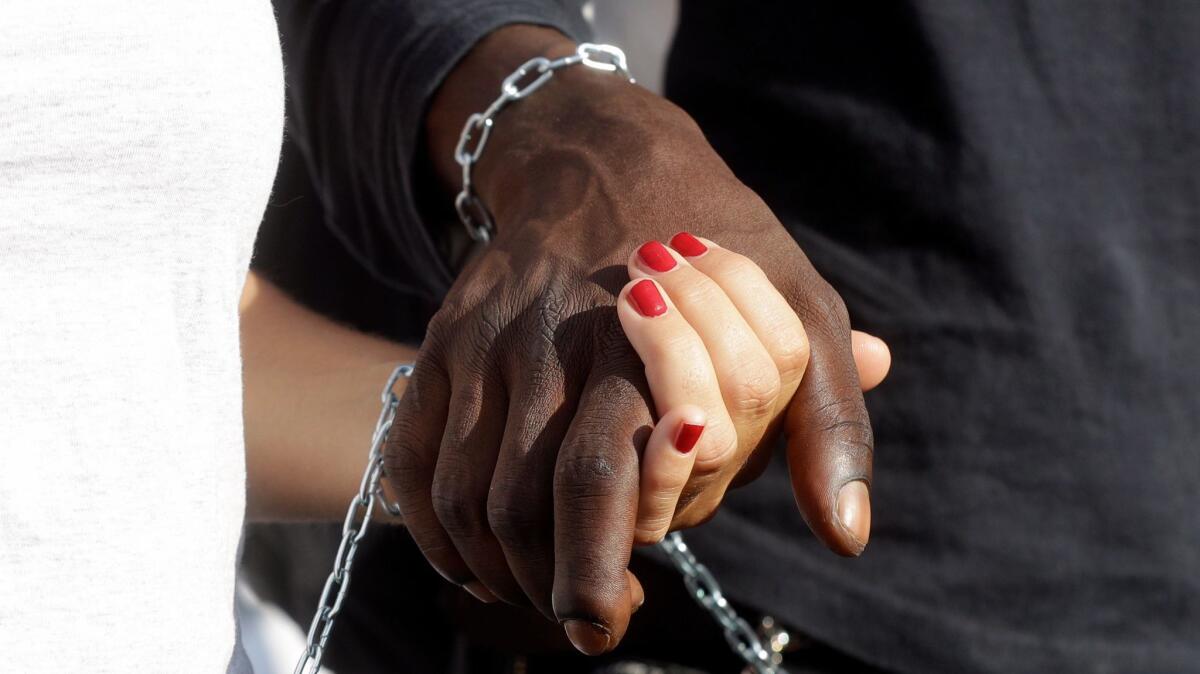Op-Ed: You know ‘thoughts and prayers’ during a crisis aren’t enough. Here’s how to really be helpful

- Share via
It’s been one endless, exhausting “thoughts and prayers” season — a mass shooting, coast-to-coast disasters, losses of lives and homes and history, along with the steady drumbeat of “everyday” human frailties. A childhood friend just emailed with his news: lung cancer, metastasized, and a son diagnosed with acute lymphoma.
Death seems too close. Darkness falls. “Thoughts and prayers,” we say. “Sending you and you and you our thoughts and prayers,” even as we realize it’s not enough. For nearly 50 years, I’ve helped people face death and illness, and I’ve come to see that what works at a bedside can make a difference in all manner of crises.
I saw the power of compassion early in my career as a psychologist on the cancer ward at the UC San Francisco Medical Center. Most of the patients there had dire prognoses, and I quickly discovered that whatever counseling I could offer paled next to the effect of simply being present. I sat with people whose friends and relatives were too afraid to visit, not sure what to do or say when a father or co-worker or neighbor was gravely ill. Sometimes I was the only one other than a nurse or cleaning person who shared a patient’s final days.
In 1974, I founded Shanti Project to train ordinary people to visit and serve those at the end of their lives. When the AIDS crisis descended on San Francisco in the 1980s, we stayed with the ill and dying, comforted them and treated them as friends, not victims. Compassion was our baseline — being with people’s suffering. We had no cures, but we helped many feel whole.
Compassion is anything but abstract. It can be taught and practiced.
We discovered compassion is anything but abstract. It can be taught and practiced. Three basic skills make a sound protocol for any crisis, whether we’ve just learned a friend is dying or we’re simply Americans in 2017, searching for ways to bridge divides, recover from disaster, heal abuse or summon the resilience to go on.
The first skill is deep listening — we call it listening from the heart. This starts with looking the other person in the eye — making real contact — and then quieting the thoughts in your mind as you focus on responses to an open-ended question such as, “How are you doing?” or “How do you feel about what’s going on?”
We encourage volunteers to be still, noticing when they drift away from listening. The idea is to keep returning to the moment, making eye contact again, directing one’s attention to the other person’s words, silences and nonverbal cues. Stay quiet, be willing to be moved by what you hear. Those in crisis need to know their experience matters. If you can just do one thing, listen in this manner.
Then speak from the heart. The most important thing to convey is, “I’m in this with you.” What those in crisis want most is not to be alone with their fear and confusion. Push aside the temptation to rush to the rescue and impose solutions. Say things like: “How can we handle this together?” “What do you think we should do next?” or “Here’s what makes sense to me. Does it make sense to you?” Partnership is far more meaningful than taking charge. As you speak, keep listening. The other person is the expert on his or her experience and needs.
Finally, act with, not for, the other person. When there’s agreement on what to do next, make a statement of collaboration: “I will join with you as best I can to make that happen.” It’s partnership that counts.
If you have friends or family coping in the aftermath of California’s wildfires, being a partner in someone’s recovery might involve making offers like, “I can research how to get FEMA aid (or replace a driver’s license, or find out long-term car rental rates), and let you know what I find that makes the most sense to me.” Send a gift card to a store with many options, rather than a box of food. Or ask, “Would it be helpful if I came over? We can do some of this together.” Action rooted in empathy is qualitatively different from swooping in and doing “what needs to be done.”
Thoughts and prayers are important. I don’t discount them. Sending money to aid agencies is essential and can do tremendous good. But empathy and compassion — seeing others as your equal, deeply imagining what they are going through — creates far deeper levels of support, relief and change. If you long to help, you’ll be most effective when you concretely demonstrate, “We’re in it together. I’m with you for the long run.”
Charles Garfield is the founder of the Shanti Project in San Francisco. His new book is “Life’s Last Gift: Giving and Receiving Peace When a Loved One Is Dying.”
Follow the Opinion section on Twitter @latimesopinion and Facebook
More to Read
A cure for the common opinion
Get thought-provoking perspectives with our weekly newsletter.
You may occasionally receive promotional content from the Los Angeles Times.









